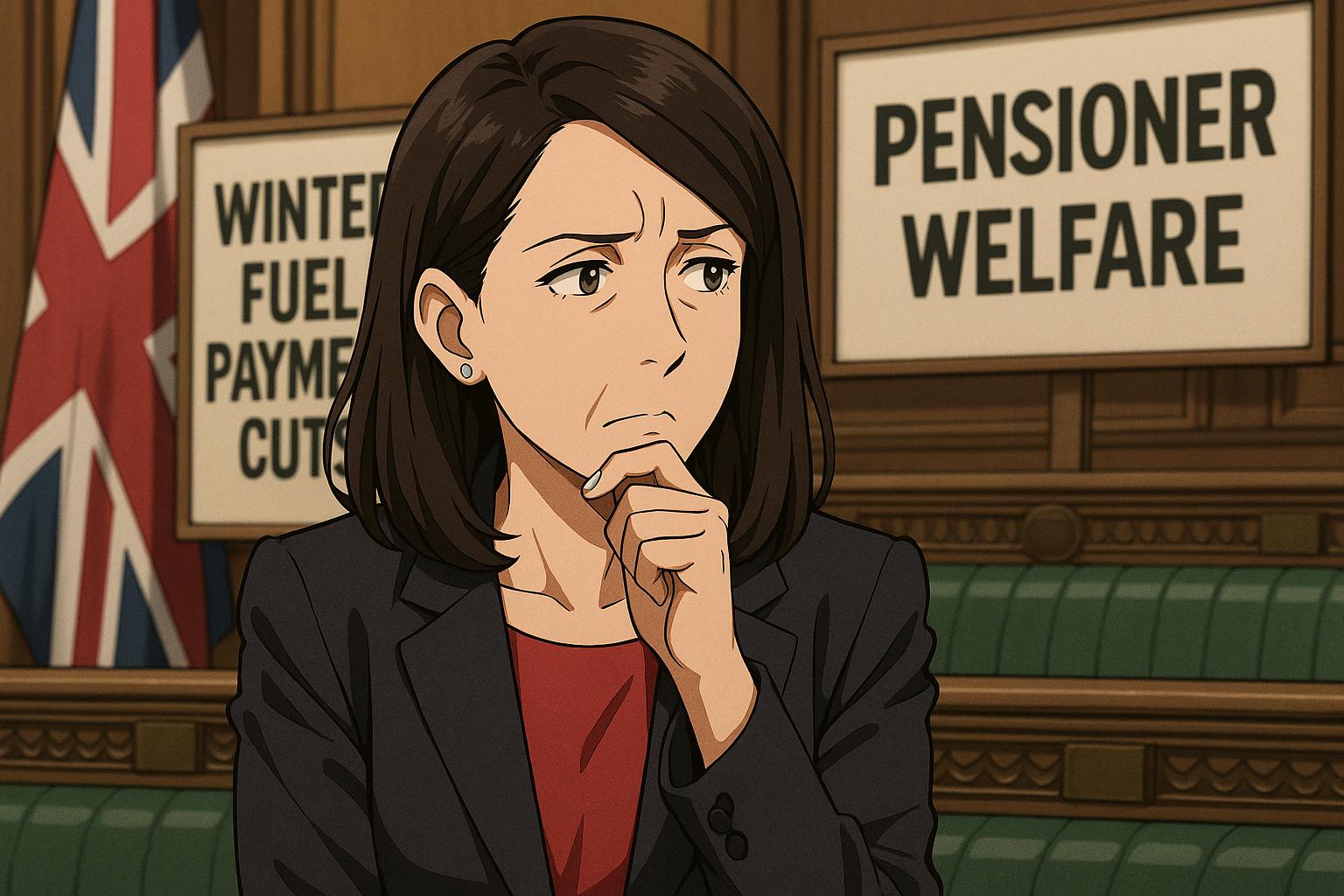Liz Kendall, the Secretary of State for Work and Pensions, has found herself at the centre of ongoing debate and speculation regarding the controversial cuts to the Winter Fuel Payment for pensioners. These cuts, introduced by Chancellor Rachel Reeves in July 2024 as part of measures to address a substantial £22 billion budget shortfall, have been met with criticism from various quarters, particularly given their potential to push up to 100,000 additional pensioners into poverty each year.
In a recent interview with The Observer, Kendall did not dismiss the possibility of a u-turn regarding the cuts, reiterating the original principle that wealthy pensioners should not receive this benefit. She stated, “The principle that millionaire pensioners shouldn't get the winter fuel allowance is the right one.” Despite her support for this stance, discussions within the Labour Party about revising the thresholds for eligibility—the income cut-off of £11,500—remain ongoing. These talks come in the wake of significant political pressure following Labour’s disappointing performance in the recent local elections, seen by many as a direct consequence of the policy.
Critics have labelled the cuts a “poll tax" for retirees and have highlighted their implications for Labour's traditional voter base, particularly among older demographics. Some party insiders have expressed concern that the cuts are damaging the party’s relationship with its historically loyal supporters, as they disproportionately affect those just above the income threshold while leaving wealthier pensioners unaffected. The immediate fallout from the elections saw calls for reforms to minimise the impact on vulnerable pensioners, and the need for a strategy that ensures support reaches those who need it has never been more pressing.
Despite the government's insistence that these cuts are vital for fiscal stability, recent economic data presents a mixed picture. While growth figures show a slight recovery at 0.7 per cent and interest rates have been reduced, the ramifications of welfare cuts are stark. The Office for Budget Responsibility, which provides economic forecasts, has indicated that the government's approach may exacerbate poverty by risking the well-being of hundreds of thousands, including children, and widening the gap between rich and poor.
Additionally, the Labour Party has faced internal dissent from trade unions and party members, who have rallied against the cuts. At Labour’s annual conference, a non-binding vote reflecting this dissatisfaction demonstrated widespread opposition. Trade union leaders branded the cuts as a politically motivated error that neglects the most vulnerable while protecting the affluent.
Amidst this backdrop, various proposals have emerged within the party to revise the payment structure. Some suggest that a regional system of support that scales according to income could better serve all pensioners, ensuring that those in need are not left behind. Such solutions could help mitigate the damage caused by the current policy and restore some confidence among older voters who feel alienated by recent decisions.
As discussions continue, Kendall's position will be closely scrutinised, particularly as Labour seeks to navigate the complex landscape of public welfare amid economic pressures. The government's approach must therefore harmonise fiscal responsibility with the social commitments that underpin its mandate, or risk further alienating a vital segment of the electorate.
The coming months will be crucial as the government prepares for the autumn Budget, a moment that could either entrench the current cuts or pave the way for a reconsideration of the support offered to pensioners across the UK.
Reference Map
- Paragraph 1: [1], [2]
- Paragraph 2: [1], [2], [3]
- Paragraph 3: [2], [3]
- Paragraph 4: [3], [4]
- Paragraph 5: [5]
- Paragraph 6: [5]
- Paragraph 7: [6], [7]
- Paragraph 8: [1], [7]
Source: Noah Wire Services
